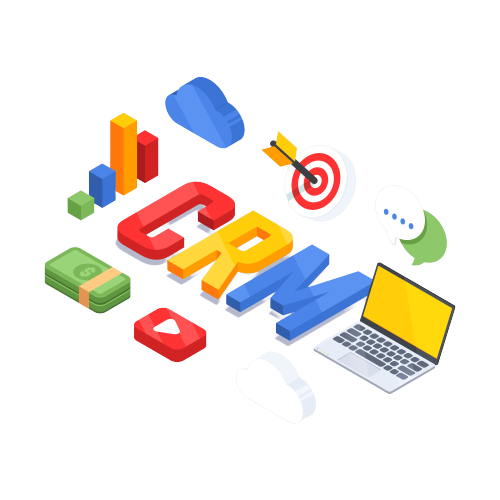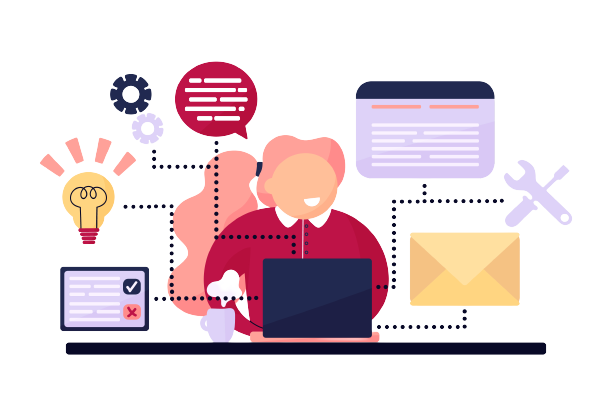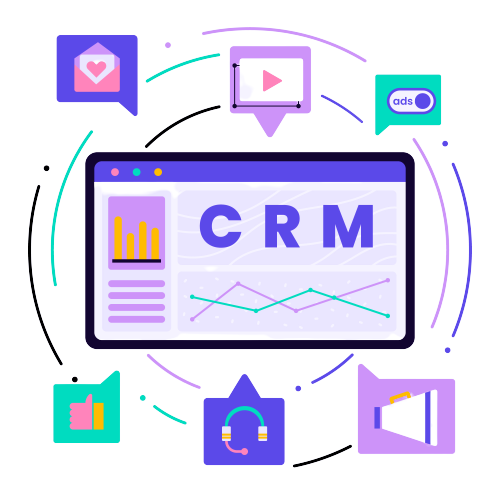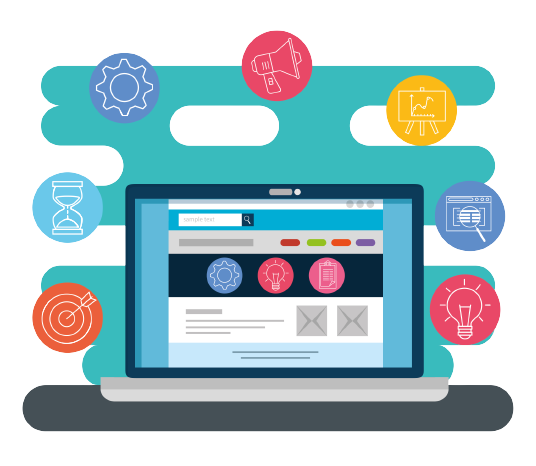
If you’re the manager of a busy sales team and aiming to conquer new markets, nurture leads, and turn prospects into loyal customers, all without draining your budget, then free sales CRM tools can act as your companion. These tools can change the way you do sales, boost your strategies, and improve your results without costing a fortune.
Sales can be a rollercoaster ride – exciting, nerve-wracking, and always changing. Good sales management can make the difference between a thriving business and one that struggles. If you’re looking for free tools to empower your business and master customer relationships without a big price tag, CRM tools are an ideal choice.
In this blog, we’ll introduce you to the best free CRM tools that are shaking up the industry. Whether you’re a startup with a tight budget, a big company aiming to be more efficient, or a sales pro looking to simplify your work, you’ll find valuable insights here. We’ll also share practical tips so you can use free CRM tools to succeed in the world of sales. It’s time to transform your sales game. Let’s get started!
Why CRM Matters: The Cornerstone of Effective Sales Strategies

At its core, CRM is all about nurturing and maintaining relationships with your customers, leads, and prospects. It’s a comprehensive approach that goes beyond just making sales; it’s about building lasting connections that benefit both your business and your customers.
So, why does CRM matter?
- Improved Customer Understanding: CRM tools help you gather and organize customer data, allowing you to understand their preferences, purchase history, and pain points. With this knowledge, you can tailor your sales efforts to meet their specific needs.
- Enhanced Communication: CRM systems provide a centralized hub for all customer interactions. This means you can communicate with your leads and customers more efficiently, sending the right message at the right time.
- Streamlined Sales Processes: CRM automates many manual tasks, such as data entry and appointment scheduling. This frees up your sales team to focus on what they do best – selling.
- Better Lead Management: CRM helps you track and nurture leads throughout their journey. You can see where each lead is in the sales funnel and provide targeted support to move them closer to conversion.
- Data-Driven Decision Making: CRM analytics provide insights into what’s working and what’s not. You can identify trends, measure performance, and make data-driven decisions to continually improve your sales strategies.
- Increased Efficiency: By having all customer information in one place, you reduce duplication of effort and the risk of missing crucial details. This leads to greater efficiency in your sales processes.
- Customer Retention: Happy customers are more likely to become repeat customers. CRM helps you build strong relationships and provide excellent service, fostering customer loyalty.
In a nutshell, CRM is about putting your customers at the heart of your business. It enables you to provide personalized experiences, drive sales growth, and build trust – all of which are vital components of effective sales strategies. Without CRM, you may find yourself missing opportunities, losing customers, and struggling to maintain your edge in today’s competitive marketplace.
Understanding CRM: A Beginner’s Guide to Customer Relationship Management

If you’re new to the world of CRM, we’re here to break it down and make it crystal clear.
At its essence, CRM is a strategy, a set of practices, and a technology solution all rolled into one. It’s like the heart of your sales and customer service efforts. Here’s a beginner’s guide to help you understand what CRM is all about:
What Is CRM?
Customer Relationship Management or CRM is a business approach that focuses on building and maintaining strong relationships with your customers. It involves gathering data about your customers, understanding their needs and preferences, and using this information to provide better products, services, and experiences.
The Three Pillars of CRM:
- Operational CRM: This aspect deals with automating and improving various business processes, such as sales, marketing, and customer service. It helps your team streamline their day-to-day tasks and improve efficiency.
- Analytical CRM: Analytical CRM involves using data analytics and reporting tools to gain insights into customer behavior. You can track customer interactions, preferences, and buying patterns, which helps you make data-driven decisions.
- Collaborative CRM: Collaborative CRM focuses on enhancing communication and collaboration within your organization. It ensures that all teams have access to the same customer data and can work together to provide a seamless customer experience.
Why Do You Need CRM?

CRM offers numerous benefits, including:
- Better Customer Service: CRM tools enable you to respond to customer inquiries and issues more quickly and effectively.
- Improved Sales: By understanding your customers better, you can tailor your sales strategies and increase conversion rates.
- Marketing Efficiency: CRM helps you create targeted marketing campaigns, ensuring that your messages reach the right people.
- Enhanced Customer Loyalty: Satisfied customers are more likely to become loyal, long-term clients.
- Streamlined Operations: CRM automates repetitive tasks, reducing the risk of errors and freeing up your team’s time.
CRM is all about building strong, lasting relationships with your customers. It empowers your business to provide top-notch service, make informed decisions, and drive growth.
Benefits of Free Sales CRM Tools
In the current sales scenario, the ability to adapt, scale, and grow is paramount. Sales teams are constantly on the lookout for tools that can provide an edge in a competitive marketplace. Free CRM system is revolutionizing the way sales teams operate and achieve their goals.
How Free CRM Tools Empower Sales Teams?
- Centralized Data: Free CRM tools serve as a central repository for all customer data, interactions, and communications. This centralized access ensures that every team member has the most up-to-date information at their fingertips. No more hunting through scattered emails and spreadsheets.
- Improved Communication: Effective communication is the cornerstone of sales success. With free CRM software, teams can easily track emails, calls, and follow-ups, ensuring that no lead or opportunity falls through the cracks. Sales reps can also collaborate more efficiently, sharing insights and updates within the CRM.
- Lead and Opportunity Management: Free CRM tools offer robust lead and opportunity management features. Sales teams can organize and prioritize leads, set reminders for follow-ups, and automate lead nurturing campaigns. This streamlines the sales process, resulting in higher conversion rates.
- Performance Insights: Free CRM systems often come with built-in analytics and reporting capabilities. Sales managers can track team performance, identify bottlenecks, and make data-driven decisions. This leads to improved sales strategies and a more effective sales force.
- Personalized Customer Interactions: Sales reps can use CRM tools to record customer preferences, past interactions, and purchase history. Armed with this knowledge, they can deliver personalized pitches and build stronger relationships with prospects and clients.
- Scalability: As your business grows, so does your customer base. Free CRM tools are scalable, making them ideal for businesses of all sizes. Whether you’re a startup or an established enterprise, you can adapt the CRM to your needs as you expand.
- Time and Resource Savings: By automating routine tasks and processes, free CRM tools free up sales professionals to focus on what they do best—selling. This increased efficiency translates to time and resource savings for the entire team.
The Cost-Efficiency Advantage: How Free CRM Boosts ROI?

When it comes to business decisions, return on investment (ROI) is a critical factor. Fortunately, free CRM tools offer a significant cost-efficiency advantage that can positively impact your bottom line.
Key Ways Free CRM Boosts ROI:
- No Upfront Costs: The most obvious advantage is that free CRM tools come with no upfront costs. This is particularly beneficial for startups and small businesses operating on limited budgets.
- Reduced IT Expenses: Free CRM software is typically cloud-based, meaning you don’t need to invest in expensive hardware or hire IT staff to maintain it. Updates and maintenance are handled by the CRM provider.
- Scalability Without Added Costs: As your business grows, you can continue to use the same free CRM tool without incurring additional expenses. This scalability ensures that your ROI remains high as your customer base expands.
- Enhanced Efficiency: Free CRM software streamlines processes and reduces manual data entry, saving valuable time for sales reps. With more time to focus on selling, your team can generate more revenue.
- Improved Conversion Rates: By organizing and nurturing leads effectively, free CRM tools help increase conversion rates. Every converted lead represents a higher ROI for your sales efforts.
- Data-Driven Decisions: The analytics and reporting features of free CRM systems allow you to make informed decisions about your sales strategies. This means you can allocate resources more effectively and invest in the areas that yield the highest ROI.
Streamlining Sales Processes: The Impact of Free CRM on Efficiency
Efficiency is the name of the game in sales. Every minute saved in administrative tasks is a minute that can be devoted to engaging with prospects and closing deals. Free CRM tools are instrumental in streamlining sales processes and ensuring that your team operates at peak efficiency.
Ways Free CRM Enhances Efficiency:
- Automated Data Entry: Free CRM software automates data entry, reducing the need for manual input of customer information. This not only saves time but also minimizes the risk of data errors.
- Lead Prioritization: With lead scoring features, free CRM tools can automatically prioritize leads based on their likelihood to convert. Sales reps can focus their efforts on high-potential leads, increasing the chances of success.
- Scheduled Follow-Ups: Free CRM systems allow you to schedule follow-up tasks and reminders. Sales reps receive alerts when it’s time to reach out to a lead, ensuring that no opportunity is missed.
- Email Templates and Campaigns: Free CRM tools often come with email templates and campaign automation. Sales professionals can send targeted, personalized messages to multiple leads simultaneously, saving significant time.
- Document Management: Many CRM systems include document management features. This simplifies the process of sharing contracts, proposals, and other documents with prospects and clients.
- Mobile Accessibility: Free CRM software is often accessible via mobile apps, allowing sales reps to work on the go. This flexibility means that important tasks can be completed from anywhere.
- Real-Time Collaboration: Collaboration features within free CRM tools enable sales teams to work together seamlessly. Team members can share insights, track progress, and collaborate on strategies in real-time.
- Instant Access to Information: With centralized data storage, sales reps can access crucial customer information instantly during calls or meetings. This immediate access enhances the quality of customer interactions.
By automating tasks, organizing data, and providing valuable insights, these tools empower sales professionals to take their performance to the next level.
Exploring the Best Free CRM Tools for Small Businesses

Small businesses often operate on tight budgets, making cost-effective solutions a priority. Fortunately, there are several outstanding free CRM tools tailored to the needs of small businesses. Let’s explore a few of the best options:
- HubSpot CRM: HubSpot offers a free CRM that’s user-friendly and robust. It allows you to manage contacts, track interactions, and customize your sales pipeline. HubSpot also provides features for email tracking and integration with other HubSpot tools.
- Zoho CRM: Zoho offers a free edition of its CRM software, which includes sales automation, contact management, and analytics. It’s suitable for small businesses looking to streamline their sales processes.
- EQUP: EQUP is an all-in-one CRM and marketing automation platform designed for small to midsize businesses. It offers a comprehensive suite of tools, including contact management, email marketing, automation workflows, and sales pipelines.
- Bitrix24: Bitrix24 provides a free CRM with features like lead management, contact tracking, and email marketing. It’s known for its social collaboration tools, making it an excellent choice for teams.
- ActiveCampaign: ActiveCampaign is a versatile marketing automation platform that combines email marketing, automation, CRM, and sales tools to help businesses of all sizes streamline customer engagement and nurture leads effectively.
Feature Comparison: What to Look for in a Free CRM Solution

When selecting a free CRM solution, it’s crucial to consider the features that align with your business needs. Here’s a feature comparison guide to help you make an informed choice:
- Contact Management: Ensure the CRM allows you to store and manage contact information, including names, emails, phone numbers, and notes.
- Sales Pipeline: Look for tools that provide a visual representation of your sales pipeline, allowing you to track leads and opportunities through various stages.
- Email Integration: The ability to integrate your email system with the CRM for email tracking and communication history is valuable.
- Task and Activity Management: A good CRM should enable you to create and assign tasks, set reminders, and track follow-ups.
- Automation: Check for automation features, such as lead scoring, email sequences, and workflow automation, to save time and enhance efficiency.
- Customization: Ensure the CRM allows you to customize fields, pipelines, and reports to match your unique sales process.
- Analytics and Reporting: Look for built-in analytics and reporting tools to track performance, measure ROI, and make data-driven decisions.
- Mobile Accessibility: Consider whether the CRM offers mobile apps or a mobile-responsive interface for sales on the go.
- Integration: Ensure the CRM can integrate with other essential tools you use, such as email marketing platforms, calendar apps, or e-commerce systems.
- User Support: Access to customer support or a knowledge base is valuable for resolving issues and getting the most out of the CRM.
User-Friendly CRM Options: Navigating Free CRM Tools with Ease

User-friendliness is a critical factor, especially for small businesses with limited resources for training and IT support. Here are some user-friendly free CRM options:
- HubSpot CRM: HubSpot’s intuitive interface makes it easy for users to navigate. It offers guided setup and plenty of tutorials to help you get started quickly.
- Zoho CRM: Zoho’s clean design and straightforward menu structure make it user-friendly. They provide ample resources for learning and troubleshooting.
- Freshsales: Freshsales offers an intuitive interface with drag-and-drop customization, making it easy to tailor the CRM to your needs without technical expertise.
- EQUP: EQUP aims to streamline customer engagement, enhance marketing efforts, and optimize sales processes, making it a versatile solution for businesses looking to grow and nurture customer relationships.
- Bitrix24: Bitrix24’s user interface is reminiscent of social media platforms, making it familiar and easy to use for teams.
- Capsule CRM: Capsule’s simplicity is its strength. It focuses on core CRM features, making it ideal for businesses that want a straightforward solution.
User-friendliness is subjective, so it’s a good idea to explore the interfaces of different CRMs through demos or free trials to find the one that best suits your team’s preferences and needs.
Maximizing Value: Integrating Free CRM with Your Sales Stack
We believe that the right tools and technology can make all the difference. CRM software has become a cornerstone of modern sales strategies, helping businesses build stronger customer relationships and streamline their operations. But what if you’re operating on a tight budget? Can you harness the power of CRM without breaking the bank? The answer is a resounding yes, especially with the availability of free CRM solutions.
However, free CRM tools, while incredibly valuable on their own, can reach new heights of effectiveness when seamlessly integrated into your existing sales stack. In this blog, we’re going to explore the art of integrating a CRM system free with your sales toolkit, unlocking a world of possibilities and maximizing the value of both.
Why Integrate Free CRM with Your Sales Stack?
Before diving into the “how,” let’s understand the “why.” Why is integrating free CRM into your sales stack so crucial?
- Data Centralization: One of the primary advantages of CRM is centralizing customer data. Integrating it with your other tools ensures that this valuable information is accessible across your entire sales operation. No more switching between platforms or juggling spreadsheets.
- Workflow Efficiency: Integration streamlines workflows. For example, when a lead is converted to a customer in your CRM, this information can automatically trigger actions in other systems, like updating an email marketing list or assigning tasks to your sales team.
- Data Accuracy: Manual data entry can lead to errors. Integration minimizes this risk by synchronizing data across systems in real time, ensuring that your records are always accurate.
- Enhanced Productivity: Your sales team can spend more time selling and less time on administrative tasks when data flows seamlessly between systems.
Key Components of Integration
Now that we understand the importance of integration, let’s delve into the key components involved:
- Choose the Right CRM Software: First, ensure that your chosen free CRM software offers integration capabilities. Most modern CRM tools provide options for integrating with popular sales and marketing applications.
- Identify Your Sales Stack: Take inventory of your existing sales tools and systems. This might include email marketing platforms, lead generation tools, sales automation software, and more.
- Define Integration Goals: What do you want to achieve with integration? Common goals include automating data transfer, improving lead nurturing, and enhancing communication between systems.
- Explore Integration Options: Investigate the available integration options for your CRM. Many free CRM solutions offer pre-built integrations with commonly used sales and marketing tools. Alternatively, you might need to use third-party integration platforms like Zapier or Integromat to bridge the gap.
- Automate Data Transfer: Set up rules and triggers that automate the transfer of data between your CRM and other systems. For example, when a lead is qualified in your CRM, it can automatically trigger an email sequence in your email marketing platform.
- Test and Refine: After integration, thoroughly test the data flow to ensure it operates as expected. Monitor the integration’s performance and refine it as necessary to optimize efficiency.
- Training and Adoption: Ensure your sales team is trained on how to use the integrated system effectively. Encourage adoption by highlighting the time-saving and productivity-enhancing aspects of the integration.
Benefits of Integrating Free CRM with Your Sales Stack
The benefits of integrating free CRM with your sales stack are numerous:
- Efficiency: Streamline your processes and eliminate manual data entry.
- Accuracy: Ensure data consistency and reduce the risk of errors.
- Productivity: Free up your sales team to focus on selling rather than administrative tasks.
- Improved Communication: Foster better communication between your systems and teams.
- Enhanced Customer Experience: Provide a more personalized and responsive experience for your leads and customers.
Integrating free CRM with your sales stack is a strategic move that can drive efficiency, productivity, and customer satisfaction. It’s about making your tools work harmoniously to support your sales goals. So, whether you’re a startup looking to optimize your operations or an established business aiming to do more with less, consider the power of integrating free CRM into your sales toolkit. It might just be the key to revolutionizing your sales strategy.